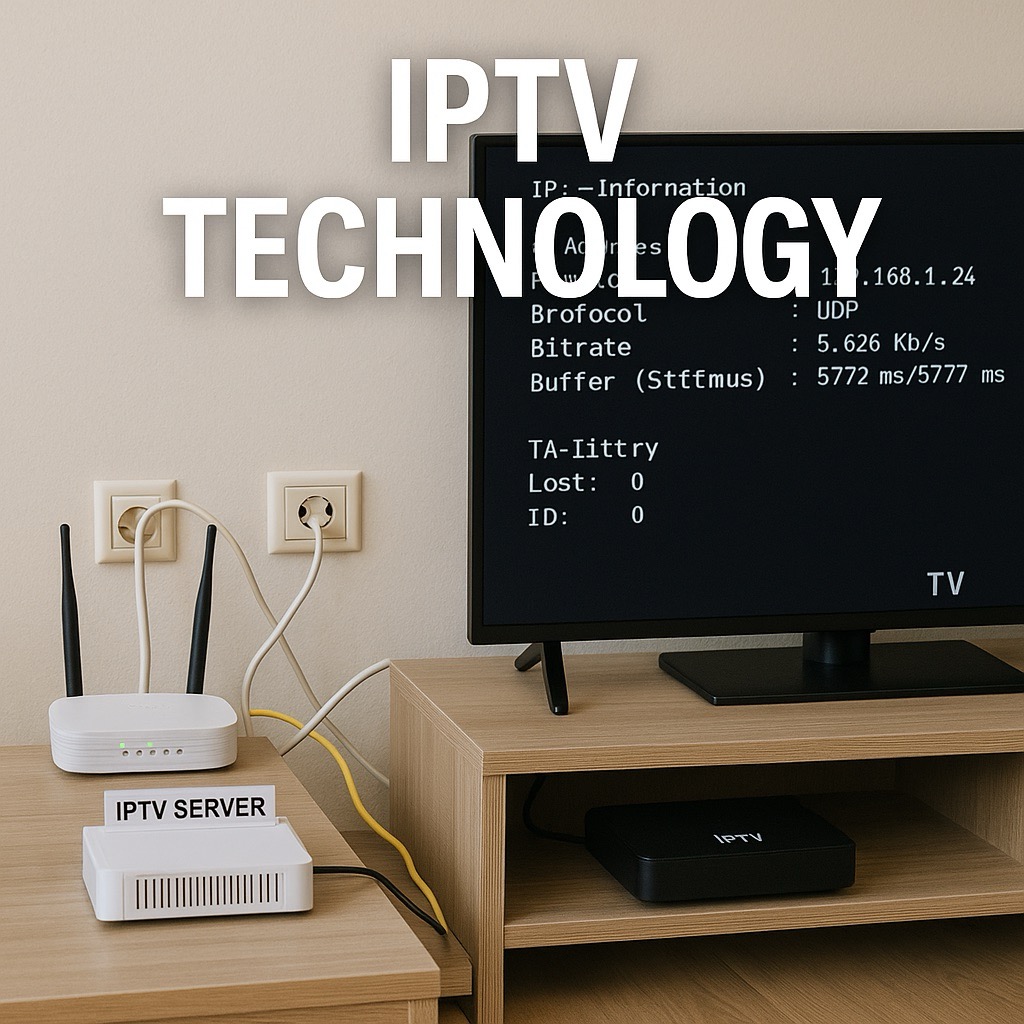What is IPTV and How Does It Work? Comprehensive Guide
With the rapid development of internet technology, our television viewing habits are undergoing a fundamental transformation. IPTV (Internet Protocol Television) emerges as one of the most important players in this change. So, what is IPTV and how does it work? In this comprehensive guide, we'll cover all aspects of IPTV technology.
Table of Contents
- What is IPTV?
- How Does IPTV Work?
- Types of IPTV
- Advantages of IPTV
- Next Server IPTV Technology Infrastructure
- IPTV vs Traditional TV Comparison
- Requirements for IPTV
- The Future of IPTV
What is IPTV?
IPTV is a technology that enables the delivery of television content over internet protocol (IP). Unlike traditional satellite or cable TV systems, IPTV works over your broadband internet connection. Thanks to this technology, television broadcasts, movies, series, and other video content are transmitted directly to your device via the internet.
How Does IPTV Work?
The operating principle of IPTV systems is quite different from traditional broadcasting systems. Here's the IPTV workflow:
- Content Encoding: TV broadcasts and video content are converted to digital format.
- Compression: Digital content is compressed with codecs like H.264 or H.265 for efficient bandwidth usage.
- Server Storage: Compressed content is stored on IPTV servers.
- Internet Transmission: When a user requests content, it's transmitted from the server to the device via the internet.
- Decoding and Playback: The IPTV device or application decodes the incoming data and makes it viewable.
Types of IPTV
IPTV services are generally offered in three main categories:
1. Live IPTV
Similar to traditional TV broadcasts, channels are broadcast live over the internet. Sports events, news programs, and live events fall into this category.
2. Time-Shifted IPTV
Allows you to watch programs you missed at a later time. Also known as Catch-up TV, this feature stores broadcasts for a certain period, allowing you to watch them whenever you want.
3. Video on Demand (VOD)
Offers a Netflix-like experience. You can watch any content you want from an extensive library of movies and series, whenever you want.
Advantages of IPTV
- High Picture Quality: Full HD and 4K broadcast support
- Interactive Features: Pause, rewind, record broadcasts
- Multi-Device Support: Watch on TV, phone, tablet, computer
- Wide Content Range: Thousands of channels and VOD content
- Personalization: Favorite lists, recommendations, and profile management
- Cost Advantage: More affordable than traditional systems
Next Server IPTV Technology Infrastructure
Next Server IPTV offers one of the most advanced examples of IPTV technology. The platform, distinguished by its modern technology infrastructure, provides superior quality service to its users:
Advanced Server Technology:
- CDN (Content Delivery Network): Globally distributed servers
- Load Balancing: Uninterrupted service with load distribution
- Auto-Scaling: Automatic capacity increase based on demand
- Real-Time Monitoring: 24/7 system monitoring and optimization
Video Technologies:
- Multi-Bitrate Streaming: Automatic quality adjustment based on internet speed
- H.265/HEVC Encoding: High quality with less bandwidth
- Adaptive Streaming: Dynamic quality optimization
- Anti-Buffer Technology: Advanced caching system
Security and Protection:
- DRM (Digital Rights Management): Content protection systems
- SSL/TLS Encryption: Secure data transmission
- Anti-Piracy: Protection against pirate usage
- Geo-Blocking: Regional access control
Performance Features:
- 99.9% Uptime Guarantee: Continuous service availability
- Global Network: Server presence in 50+ countries
- Low Latency: Low delay time
- Multi-Connection: Support for 5 simultaneous devices
IPTV vs Traditional TV Comparison
| Feature | IPTV | Traditional TV |
|---|---|---|
| Transmission Method | Internet (IP) | Satellite/Cable |
| Interactivity | High | Low |
| Content Control | Full control | Limited |
| Installation | Easy | Complex |
| Multi-Device | Supported | Limited |
| Cost | Affordable | High |
Requirements for IPTV
What you need to use IPTV service:
Internet Connection
- For SD quality: Minimum 3-4 Mbps
- For HD quality: Minimum 8-10 Mbps
- For 4K quality: Minimum 25 Mbps
Compatible Devices
- Smart TVs
- Android TV Box / Apple TV
- MAG devices
- Smartphones and tablets
- Computers
- Gaming consoles
Next Server IPTV Special Requirements:
- Minimum 5 Mbps: For stable HD viewing
- Recommended 15 Mbps: For 4K and multi-device usage
- Fiber Internet: Fiber infrastructure recommended for best experience
- Modern Devices: Optimized for devices manufactured after 2018
The Future of IPTV
IPTV technology continues to evolve continuously. With the proliferation of 5G technology, artificial intelligence integration, and advanced personalization features, the future of IPTV looks very bright. In the near future, we may see:
- 8K Video Support: Ultra-high resolution broadcasts
- Virtual Reality (VR) Integration: Immersive viewing experience
- Advanced Audio Technologies (Dolby Atmos): 360-degree sound experience
- AI-Powered Content Recommendations: Personalized content discovery
- Social Media Integration: Interactive viewing experience
Next Server IPTV's Future Vision:
- AI-Powered EPG: Artificial intelligence supported program guide
- Cloud DVR: Cloud-based recording system
- Interactive TV: Interactive broadcast experience
- Multi-Language AI: Real-time translation and dubbing services
💡 Pro Tip: To get the best performance from your IPTV service, make sure you have a strong and stable internet connection. Next Server IPTV offers free consultation service for internet speed optimization.
Conclusion
IPTV is a revolutionary technology that completely transforms the television viewing experience. With the strengthening of internet infrastructure and technological advancement, the importance and usage of IPTV are increasing day by day. Providers with strong technological infrastructure like Next Server IPTV are shaping the industry by offering next-generation IPTV experience to their users.
With the right service provider and appropriate internet infrastructure, IPTV eliminates the limitations offered by traditional TV, providing a free and rich viewing experience. With continuous technological development, the possibilities offered by IPTV are expanding more and more every day.
